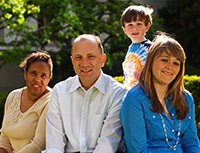Not long ago, doctors were often skeptical when cancer patients who had undergone chemotherapy complained that they were mentally foggy; unable to plan a week’s worth of meals or organize their finances as they could before. Patients called this side effect “chemobrain” and were frustrated by the lack of recognition – or suggested remedies – from their physicians.
What is a Benign Tumor and What is a Malignant Tumor?
Medically reviewed by Keith Ligon, MD, PhD A tumor is an abnormal mass of tissue that has formed a lump. It’s called a benign tumor if it grows slowly and is self-limiting; that is, if it doesn’t have the capacity to invade nearby tissues and spread beyond its original site. A malignant, or cancerous, tumor, … Read more

 Faced with an abundance of cancer stories in the news and our own personal experiences with cancer, we may fear that there’s a growing “epidemic” of the disease.
Faced with an abundance of cancer stories in the news and our own personal experiences with cancer, we may fear that there’s a growing “epidemic” of the disease.